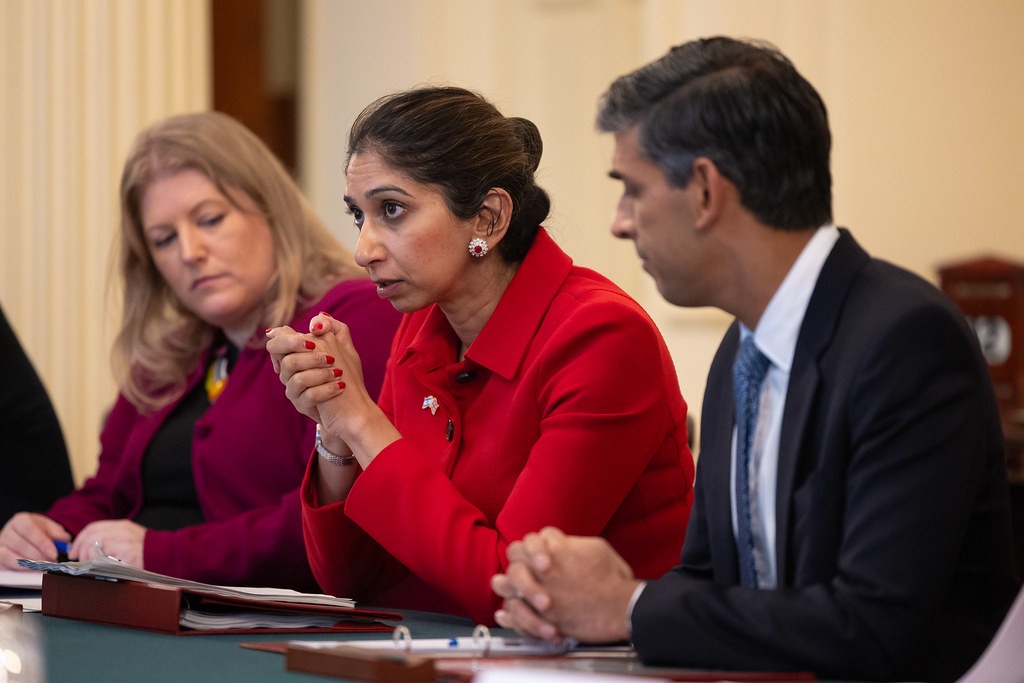Multiculturalism is the spanner in the Conservative Party
It was a rare uncomfortable glimmer in Rishi Sunak’s armour, but boy did it show. The Prime Minister was being grilled by Today’s Nick Robinson on Suella Braverman’s suggestions multiculturalism “had failed”. And in one fell swoop, the challenge facing him was set clear.
The PM’s first year in the job has been tainted by slightly directionless policy making and unpersuasive leadership, but there has been one consistent theme: his reluctance to take on the party’s right and recent history. His decision to restore Suella Braverman to the Home Office, after she had resigned only days earlier, was the first indication that he was not about to go to war with the party’s Truss experimentation and growing nativist sentiments. This was further made clear by his call to permit Boris Johnson a resignation honours list and not vote on the Partygate Privileges Committee findings.
It even led him to take a bizarre aim at the last 30 years of ‘status quo’ government in his flagship party conference speech. It’s an arbitrary but purposeful number: far enough ago to include the last Labour government yet exclude Thatcher, whilst also tarring his one-time admirer David Cameron. With an increasingly fragile record to stand on, Sunak has instead aimed for a campaign focused on renewal. In order to convince voters to back his party for a fifth time, he must assure them that he offers something radically different to his predecessors whilst also keeping his warring party together.
Sunak has been unable to assert his own identity
But Sunak’s reluctance to defend Braverman’s headline-grabbing claims that multiculturalism “had failed” outlines the impact of his circumscribed political space. In being so keen to go along with Braverman’s intentions, however contradictory to the government line, he has been unable to assert his own identity. His pride at his own ethnic background did receive a mention at conference, but in a specifically personal and limited way. The prime minister chose to draw attention to the lack of discussion on his ethnicity as the real story, rather than make an impassioned argument on the grounds of it.
But when facing Robinson, that diplomacy faltered. It is clear he does not agree with Braverman, even if he backs the political intentions of her anti-boats mission (and his future may depend on it). In one snapshot, it exposed the problem his Conservative Party now faces. Rather than focusing on the radical comeback required to win the next election, it is instead already looking to the future. And it is a future which almost certainly will see a further turn to the right, one which may have Braverman in prime position and perhaps even a space for former UKIP and Brexit Party leader Nigel Farage.
In choosing to unify rather than redirect, Sunak has taken an enormous gamble
There could yet be a year to go before the next general election, but Rishi Sunak’s inability to transform the government’s fortunes so far is clear. As more seats fall to large Labour swings in by-elections and national polls fail to narrow, further questions will be asked of the prime minister’s efficacy in rejuvenating the Conservative Party. In choosing to unify rather than redirect, Sunak has taken an enormous gamble. It has allowed him only rare moments of expressing personal intent, such as his recent review of net zero plans. But it has consequently allowed the party’s platform to be shaped by Braverman and her many allies. These could be divisions which shape the Conservatives for decades to come.

Comments